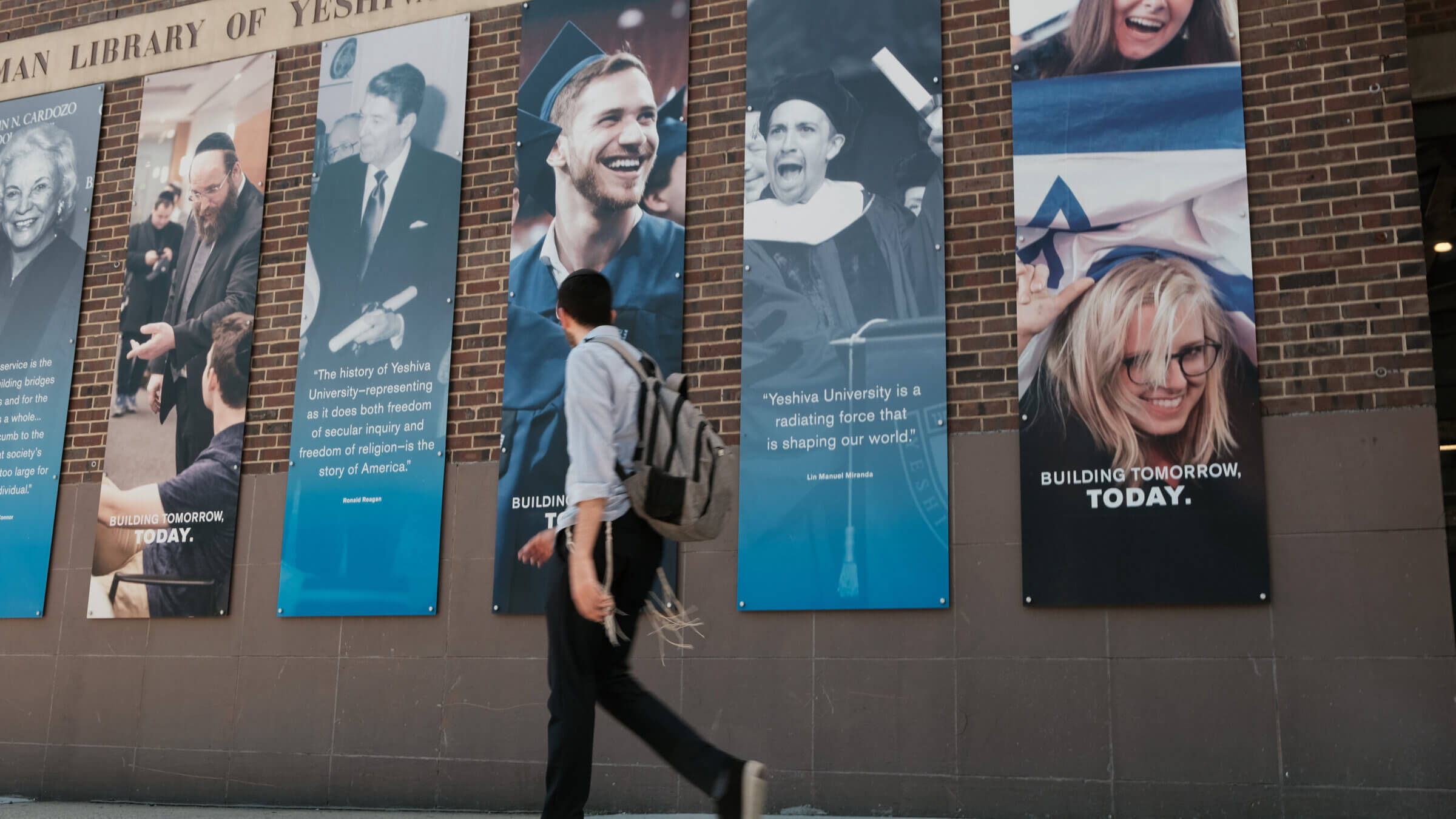Yeshiva University LGBTQ group responds to school’s emergency SCOTUS petition
The school wants to turn a case it lost in June into a First Amendment showdown

The campus of Yeshiva University in New York City on Aug. 30, 2022 Photo by Spencer Platt/Getty Images
The Yeshiva University Pride Alliance responded Friday afternoon to the school’s petition to the U.S. Supreme Court to allow it to block the LGBTQ student group.
The group’s response challenges the university’s escalation of the dispute from a Manhattan courtroom to the U.S. Supreme Court largely on procedural grounds. It mostly does not address YU’s framing of the case as a First Amendment question in the emergency petition it filed to Justice Sonia Sotomayor on Monday.
“Applicants’ extraordinarily premature application blows past all prerequisites to this Court’s jurisdiction and its orderly review of state court orders,” the Pride Alliance wrote in its 48-page response, which Sotomayor had requested by end of day Friday.
Sotomayor has the power to grant, reject or ignore Yeshiva’s request for a stay on a Manhattan judge’s ruling that it had to recognize the Pride Alliance. Sotomayor, who is considered the court’s most liberal justice, can also refer the case to the other justices so that the entire court may hear and eventually rule on the case.
Yeshiva University, the flagship institution of higher education in Modern Orthodoxy, holds that as a religious institution, it may reject student groups that do not align with its values. The Pride Alliance counters that civil rights laws require the university to recognize it.
To the extent that it engaged with the school’s First Amendment complaint, the Pride Alliance said that recognizing the group did not limit YU from saying that it conflicted with the school’s practice.
“At the same time, while Yeshiva University can espouse its Torah values without interference, it may not deny certain students access to the non-religious resources it offers the entire student community on the basis of sexual orientation,” it wrote in Friday’s response.
A judge ruled in June that the school’s refusal to recognize the Pride Alliance was a violation of the New York City Human Rights Law, which prohibits harassment in employment, housing and public accommodations.
The school had sought to be categorized under that law as a religious organization rather than as an educational institution, but Kotler held that was inconsistent with YU’s own descriptions of itself in its charter, public messaging and applications for state funding.
Pointing out that recognizing a club is not the same as endorsing its views, Kotler required YU to grant the club “full and equal accommodations, advantages, facilities, and privileges afforded to all other student groups.”
The school’s appeal for a stay on the lower court’s order was denied by New York’s state Supreme Court in August.
In Monday’s petition, which was filed by the Becket Fund for Religious Liberty, YU President Ari Berman called the lower court’s ruling “an unprecedented intrusion into Yeshiva’s religious beliefs and the religious formation of its students in the Jewish faith.”
Since then, a number of Orthodox organizations and rabbinic leaders have filed amicus briefs on the case in support of YU, including Agudath Israel of America, an umbrella organization of Haredi Orthodoxy, and the Rabbinical Council of America, which represents more than 1,000 Orthodox rabbis.
YU published an FAQ on its website Thursday in which it said it “absolutely” welcomes and supports LGBTQ students, but that it was “defending the future of our institution” from impingement on its right to set school policy according to religious values.














